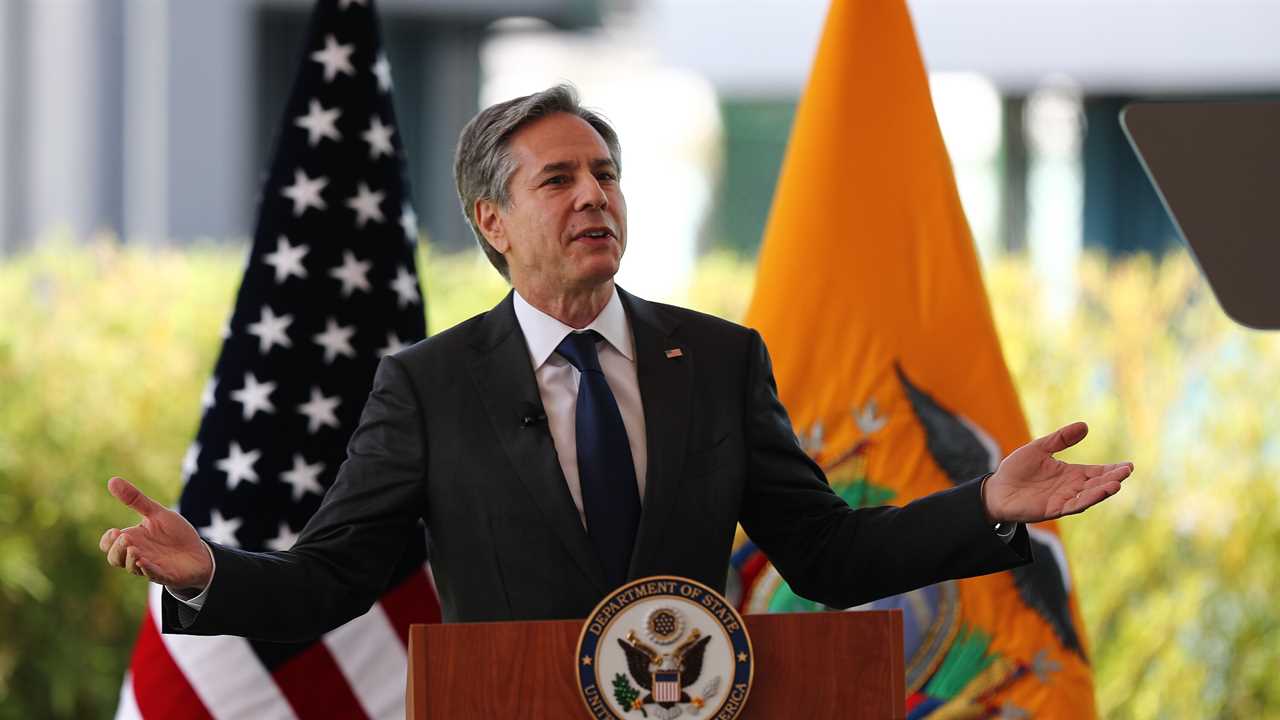
QUITO, Ecuador — When Secretary of State Antony J. Blinken on Wednesday described democracies where leaders have threatened opponents, attacked the media or undermined legal systems, he could have been talking about any number of nations in the Western Hemisphere: Brazil, Nicaragua, Venezuela, even the United States.
As it happened, Mr. Blinken was speaking about past administrations in Ecuador, citing the country’s shift from authoritarian rule as proof that open governments can provide enduring stability and economic opportunity. His pitch, delivered at a top Ecuadorean university that is at the center of dueling American and Chinese influence campaigns, comes at a time of eroding trust in democracy and rising incidence of oppression in Latin America.
It was also delivered just two days after Ecuador’s relatively new leader, President Guillermo Lasso, imposed a state of emergency that limits movements and restricts gatherings; it was done, the government said, to counter a surge in violent crime and drug trafficking.
“We find ourselves in a moment of democratic reckoning,” Mr. Blinken said at the San Francisco University of Quito. The school hosts the Confucius Institute, which has been accused of promoting Chinese government propaganda, and is in its second year of receiving American funding to investigate and counter disinformation efforts.
“For all of us who believe in democracy, and who believe its survival is vital to our shared future, the question is: What can we do to make democracies deliver on the issues that matter most to our people?” Mr. Blinken said.
Mr. Blinken said he had been assured by Mr. Lasso, during meetings in Quito, Ecuador’s capital, that the emergency decree would focus on crime and be finite in duration.
But Mr. Blinken said that democracies need to accelerate efforts to combat corruption and crime that rely not only on security forces but also on broader social and economic undertakings. To demonstrate the value of democracy, Mr. Blinken said, governments must embrace longer-term principles like ensuring fair labor standards and giving more people access to education and health care.
He did not offer specifics on how that might be done. Nor did he acknowledge that the billions of dollars the United States has spent in the region have been accompanied in recent years by a surge in populism that, in some cases, has led to strongmen leaders.
Mr. Blinken acknowledged that the United States has a “mixed” record in helping the region improve security. His appearance hours later in the Colombian capital, Bogotá, with President Iván Duque revealed the struggles in relations with allies that may fall short of American democratic standards.
Mr. Duque has sought to clear a stain on his government following deadly protests earlier this year, when state security forces opened fire on demonstrations against poverty and inequity in Colombia. Mr. Duque has said he has “zero tolerance” for police brutality or human rights violations — an assertion he repeated Wednesday — and says he is committed to training and other reforms.
But President Biden did not meet with Mr. Duque in two trips by the Colombian leader to the United States this fall, signaling U.S. unease with the fallout.
Investigations into the violent crackdown against protesters continue, Mr. Duque said Wednesday, and “we expect to see a severe punishment if there are conducts that are proven to be made by the members of the force,” he said.
He also said that protesters who attacked security forces or vandalized property during the demonstrations would be held to account. “Human rights are for everyone,” Mr. Duque said during a news conference with Mr. Blinken in Bogotá.
Mr. Blinken said he and Mr. Duque agreed that those who attacked protesters, journalists and other defenders of human rights should be held accountable. But with the United States also relying on Colombia’s help on climate change, migration and the political morass in neighboring Venezuela, Mr. Blinken’s criticism went only so far.
“We have no better ally on the full range of issues that our democracies face in this hemisphere,” Mr. Blinken said.
Did you miss our previous article...
https://trendinginthenews.com/usa-politics/rahm-emanuel-seeking-senate-nod-discusses-2014-police-shooting






